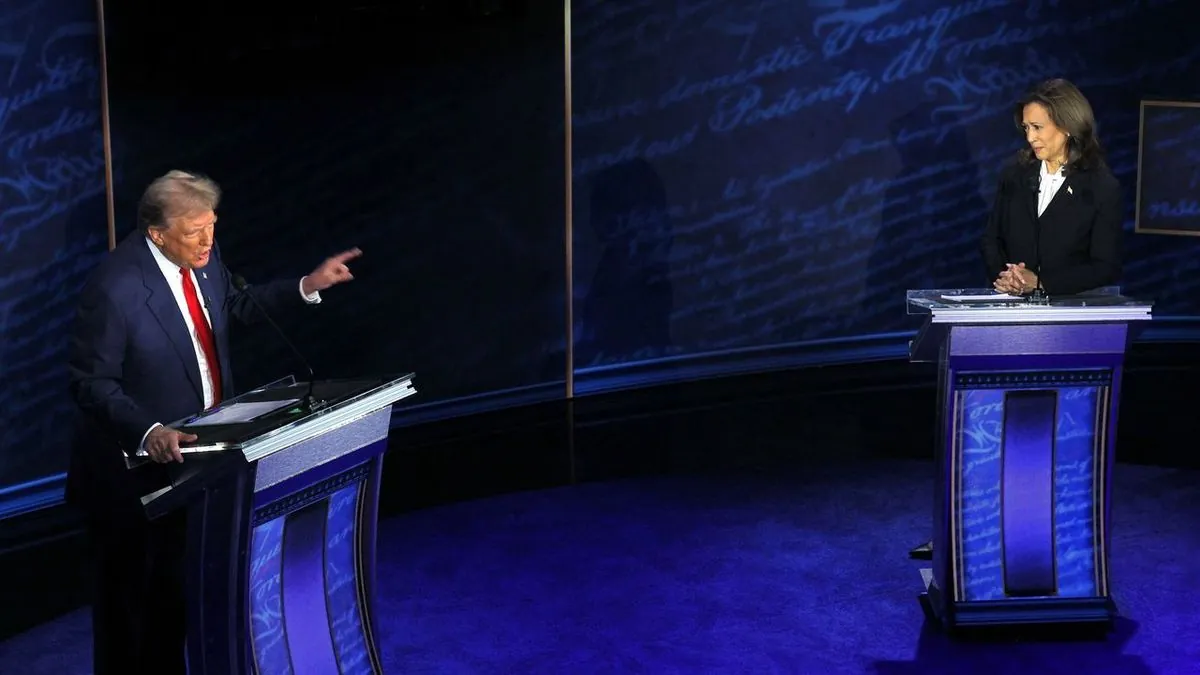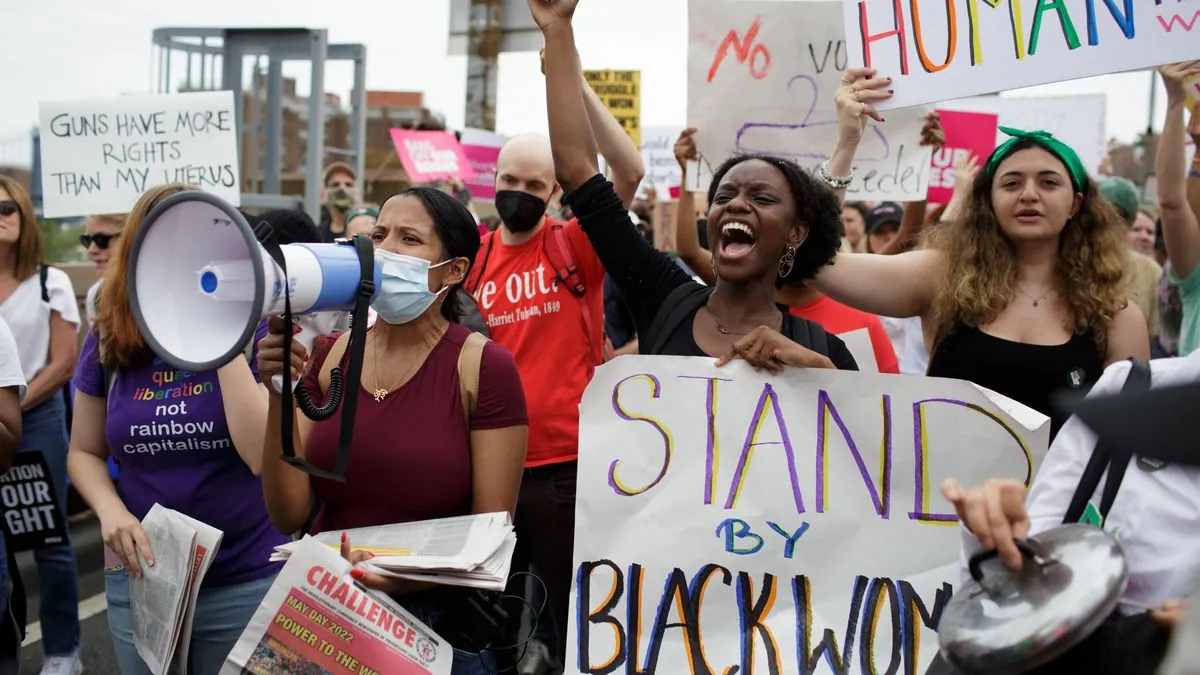Harris's Forceful Abortion Rights Defense Contrasts with Biden's Past Stumbles
Vice President Kamala Harris delivered a powerful defense of abortion rights during a recent debate, highlighting the stark contrast with President Biden's previous hesitancy on the issue.

In a recent presidential debate, Vice President Kamala Harris demonstrated a marked difference from President Joe Biden's previous approach to discussing abortion rights. While Biden had struggled with the topic during a debate last summer, Harris delivered a compelling argument in support of reproductive rights.
Harris, the first female, African American, and Asian American vice president, addressed the consequences of the Supreme Court's decision to overturn Roe v. Wade in June 2022. She highlighted the medical emergencies faced by women in states with strict abortion bans, stating:
"You want to talk about this is what people wanted? Pregnant women who want to carry a pregnancy to term, suffering from a miscarriage, being denied care in an emergency room because health care providers are afraid they might go to jail and she's bleeding out in a car in the parking lot?"
Harris's forceful stance on abortion rights reflects her unique position within the administration. As the White House's public face for maternal health and abortion access initiatives, she has taken a leading role in addressing this contentious issue. Earlier this year, Harris became the highest-ranking U.S. official to visit an abortion clinic publicly.
Dr. Daniel Grossman, a University of California, San Francisco OB-GYN, commended Harris for highlighting the challenges faced by individuals in states with abortion bans. He emphasized the importance of addressing the needs of those who must travel for care or face complications due to these restrictions.

While Harris advocated for reinstating Roe v. Wade protections, she avoided specifying any potential restrictions on abortion. This approach aligns with the fact that the U.S. currently has no federal law regulating abortion, leaving it to individual states. As of 2024, approximately half of U.S. states have implemented laws restricting abortion access.
In contrast, Donald Trump evaded questions about his intentions regarding further abortion restrictions. He did not commit to signing a national abortion ban if elected president. This ambiguity has led some anti-abortion advocates to doubt the likelihood of such a ban being implemented.
Carol Tobias, president of the National Right to Life Committee, expressed skepticism about the possibility of a national ban, citing a lack of congressional support and Trump's reluctance to sign such legislation.
It's worth noting that Trump made false claims during the debate, including an assertion about Democrats supporting the "execution" of babies after birth in the ninth month of pregnancy. This statement is not based on factual information, as late-term abortions are extremely rare and typically performed only in cases of severe fetal abnormalities or risks to maternal health.
The debate highlighted the ongoing importance of abortion rights in U.S. politics, with public opinion polls consistently showing that a majority of Americans support legal abortion in at least some circumstances. As the 2024 election approaches, the contrast between Harris's and Trump's positions on this issue is likely to remain a significant factor for voters.


































